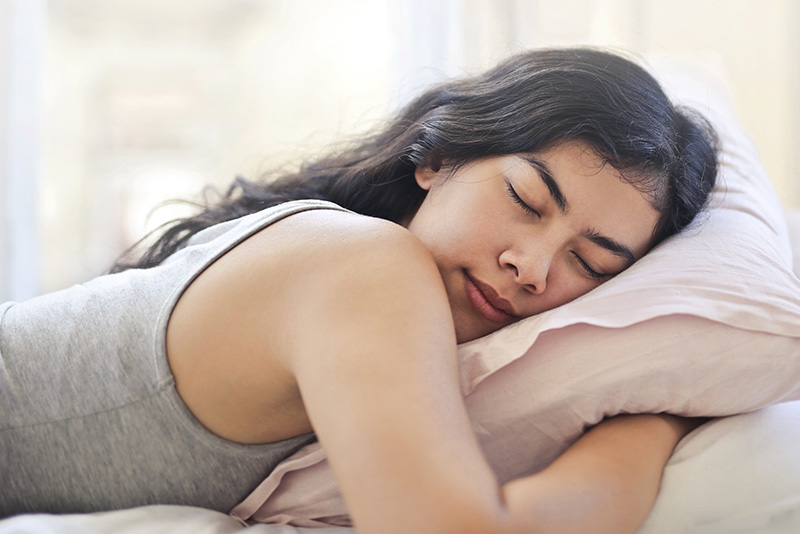By Nordine Zouareg | CONTRIBUTOR |
“Sleep is that golden chain that ties health and our bodies together.”
– Thomas Dekker
May is Mental Health Awareness month and therefore a great opportunity to talk about sleep. It would be an understatement to say that at one point or another, during the last fifteen months, most of us have experienced disrupted sleep. Individuals with sleep issues and daily burnout may be at greater risk of COVID-19 and a more severe disease progression, according to study findings published March 22nd in BMJ Nutrition, Prevention & Health. This article is an attempt to bring awareness and offer a few tips for better sleep.
Why do we need sleep?
Sleep plays a major role in preparing your body and mind for a productive psychologically and physiologically healthy tomorrow. At least two significant studies have shown that the less sleep you get the more likely you are to be overweight and are at higher risks for diabetes and cardiovascular disease.
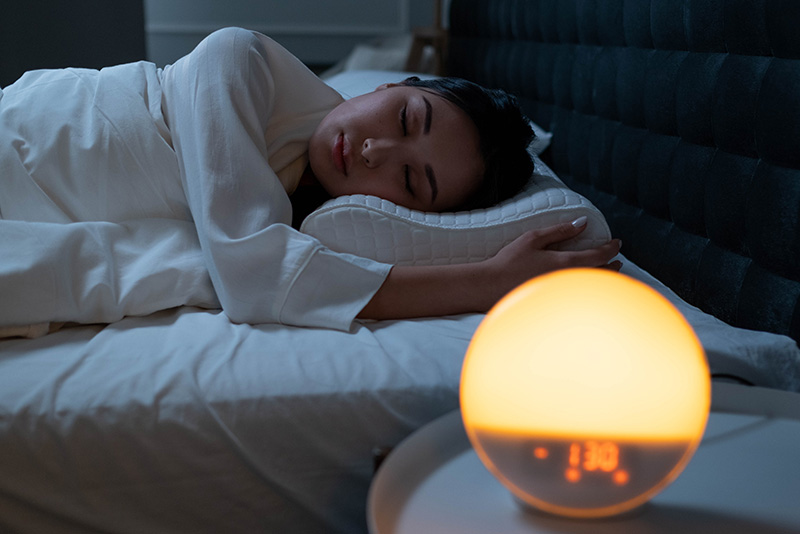
Dr. Steven Heymsfield of Columbia University and St. Luke’s-Roosevelt Hospital in New York, and James Gangwisch, a Columbia epidemiologist, headed a study that looked at the information provided by 18,000 adults. What the researchers found was that people who got less than 4 hours of sleep a night were 73 percent more likely to be obese than those who got the recommended seven to nine hours. Those who averaged 5 hours of sleep had a 50 percent greater risk, and those who got 6 hours had 23 percent more.
In another study, researchers at Stanford and the University of Wisconsin-Madison looked at more than 1,000 participants in the Wisconsin Sleep Cohort Study who had spent a night in the lab and had a blood sample taken upon awakening. What they discovered was that those who slept shorter times had higher blood levels of ghrelin, a hormone that increases appetite, and lower levels of leptin, a hormone that decreases appetite. The shorter sleepers also had a higher body mass index.
Mental wellbeing and sleep
Mental illness and sleep are not simply associated but they are physically linked to the brain, as Russell Foster, Professor and head of the Nuffield Laboratory of Ophthalmology and the Sleep and Circadian Neuroscience Institute, explains in his Ted Talk.
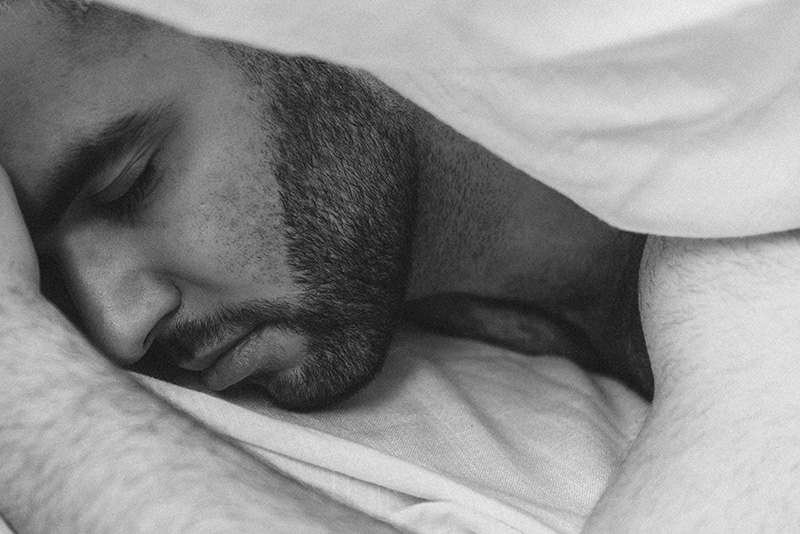
He says that the neural networks that predispose you to normal sleep and those who give you normal mental health are overlapping. Genes that have been shown to be very important in the generation of normal sleep, when mutated or changed, predispose individuals to mental health problems. Dr. Foster explains that by understanding these two systems, we’re really beginning to grasp how both sleep and mental illness are generated and regulated within the brain.
So, the long and the short of it would seem to be, take sleep seriously and get a good night’s sleep!
Bad habits that can affect sleep:
- Alcohol. Alcohol reduces sleep quality, waking you up at night. To avoid this effect, stay away from alcohol in the hours before bed.
- Caffeine can cause sleep problems up to twelve hours after drinking it! Stop consuming caffeinated drinks after 3 p.m.
- Nicotine is a stimulant that disrupts sleep.
- Too much liquid. Drinking lots of fluids may result in frequent bathroom trips throughout the night, therefore interrupting your sleep.
- Too much food. Especially fatty foods. These take a lot of work for your stomach to digest and can keep you up. Acidic or spicy foods in the evening cause stomach trouble and heartburn.
7 Mindful tips:
1 – Keep moving or take a warm bath – Low-impact physical exercise early in the evening, such as a leisurely walk, helps some people to sleep better. Walking can clear the mind of the day’s worries and activities. A warm-cool bath promotes sleep for others. Repetitious thinking such as counting sheep or reciting positive affirmations works for a few people. Reading, praying, and meditating can relax the mind, allowing sleep to come.

2 – Stop midnight awakenings – For people who awaken during the night and cannot return to sleep, several remedies may be tried. Avoid drinking fluids after the evening meal, to reduce the need to go to the bathroom during the night or in the early morning hours. People who take diuretics should take that in the morning instead of the evening, to prevent bathroom trips at night.
3 – Don’t touch that snooze button – People suffering from early morning insomnia should attempt to go to bed earlier so that their rest is completed by their morning waking time, rather than remaining in bed and perpetuating the focus on not sleeping. It’s best to get up and do a productive activity.
4 – Keep electronics out of the bedroom – Lights out thirty minutes before falling asleep – Let’s face it — we love our gizmos and gadgets. I know I do! Our modern society is flooded with high-resolution electronic screens — TVs, PCs, smartphones, and tablets that can be easily taken just about anywhere. Many people find it difficult to disconnect, and more and more people use electronic devices in their bedrooms, which is preventing them from getting the rest they need.
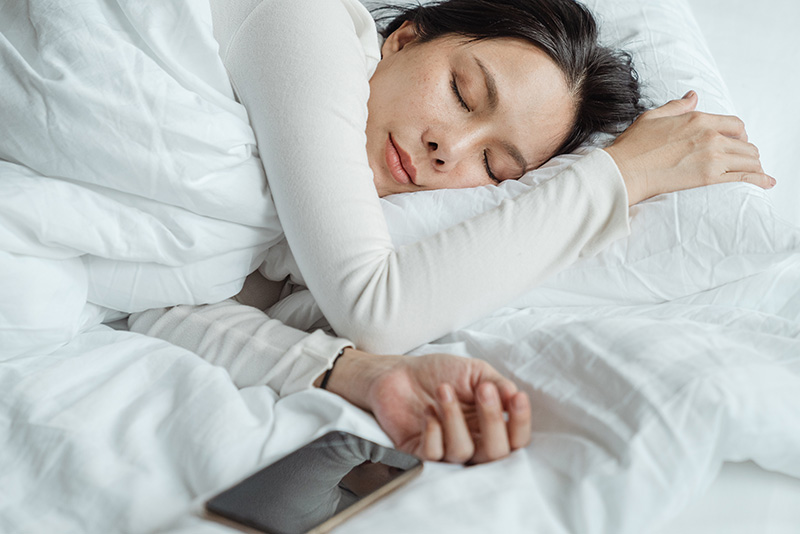
A 2011 Sleep in America® poll by the National Sleep Foundation found that six in ten Americans use their personal computer within an hour of going to sleep and four in ten Americans bring their cell phones, smartphones, or tablets computer into the bedroom. A staggering number of people—80% in the same study — report problems falling asleep at night, and these devices are likely a contributing factor. This is in part due to the effects of LED-backlit screens emitting glowing blue-light wavelength on melatonin – a hormone that regulates sleep and wakefulness.
5 – Build and follow a regular sleeping ritual – Wake Up Refreshed and Ready – When it comes to following a sleeping pattern, discipline is key. If you are frequently changing your sleeping times and are not regularly sleeping around the same time, then it will inhibit your body from developing a sleeping cycle or rhythm. Most people who wake up energized and active are the ones who have developed a regular sleeping pattern; they make sure they get to bed at the same time every day and wake up at the same time. For example, if you go to bed at 10:30 pm and wake up at 6:30 am, and make this a habit, your body will get into a sleeping rhythm also known as the circadian rhythm.
6 – Listen to music and drift away – Music can relax you and induce sleep. I love to listen to classical music for 30 to 45 minutes before going to bed. My favorites are “Clair de Lune” by Claude Debussy and “Meditation from the opera Thaïs” by Jules Massenet. If you are not a classical music fan, that’s fine! Play anything that relaxes you, something like Café del Mar Dreams by Milews Buddha Bar Mix, but just don’t listen to AC/DC or something that makes you want to jump out of bed and go out of your mind.
7 -Use guided meditation for sleep – I find guided meditation very helpful myself, and I recommend them to my clients. There are many free-guided audio meditations for sleep available on the Internet. YouTube has an extensive reputable selection. You can also purchase guided meditations for sleep and relaxation on CD at any book- store or online. I prefer the app versions so I can have them on my smartphone. I usually use a headset and leave the phone in a separate room.
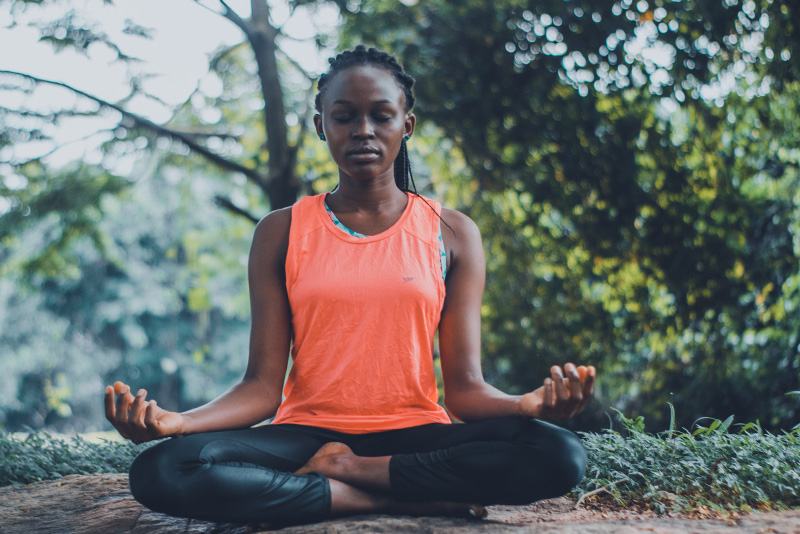
If you suffer from chronic insomnia, consult with your physician as there may be some underlying medical issues causing your sleep disturbance.
Important Note: if you suffer from sleep apnea and use a CPAP machine, wear it before listening to guided meditations for sleep.
~ Nordine Zouareg
| By Nordine Zouareg, Author of the book
InnerFitness |
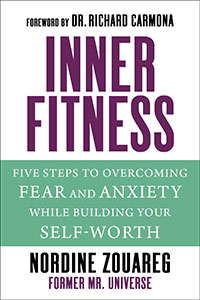 |
By Nordine Zouareg, Author of the book
InnerFitness
Five Steps to Overcoming Fear and Anxiety
While Building Your Self-Worth.’
Subscribe to get notifications about future articles.
About the Author: Nordine Zouareg – Contributor
Nordine Zouareg is the founder of Executive InnerFitness®, which for the past decade has helped thousands of overworked US Corporate Executives find work-life balance. As a former two-time Mr. Universe champion, an internationally acclaimed high-performance coach, fitness and wellness expert, author of the books Mind Over Body (Grand Central Publishing, 2007), and InnerFitness (SkyHorse Publishing, 2021), Nordine has made it his mission to provide effective and proven methods for maintaining both emotional and physical fitness. He has spent years understanding the unique pressures and stresses of working in high performance fields and has used his knowledge to help people tap into their ability for peak performance and ward off stress and emotional chaos. He draws on three decades of diverse experience in the fitness and wellness fields, including 10 years leading the revolutionary fitness program at Miraval Resort, the world-class destination spa in Tucson, Arizona.

